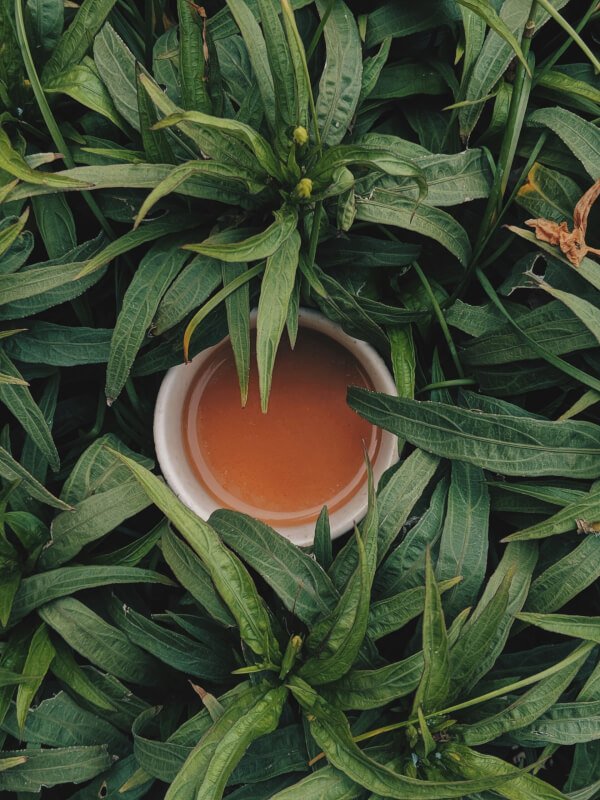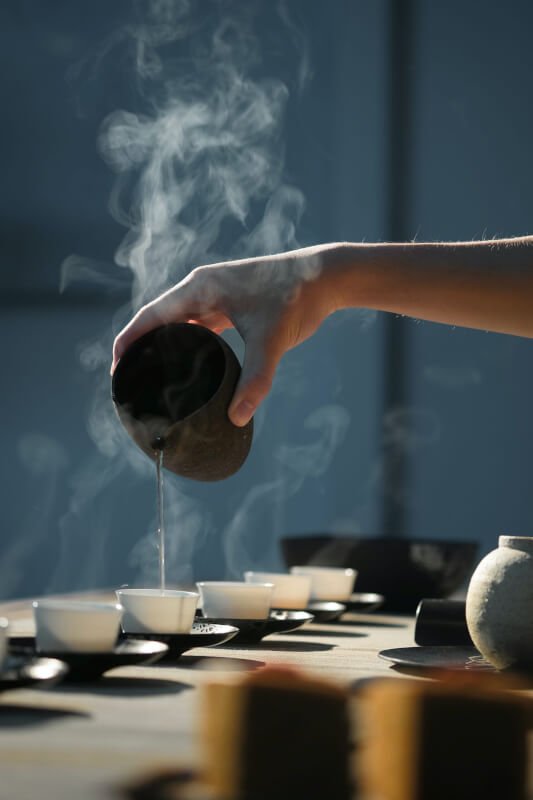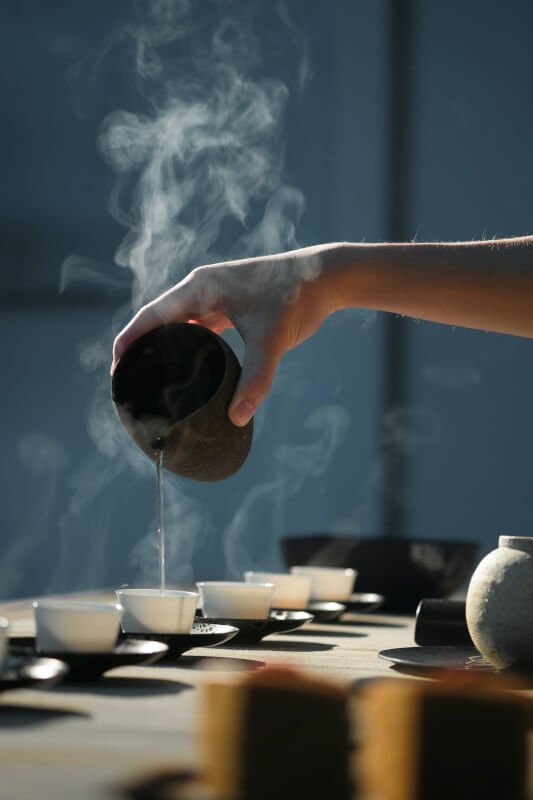Imagine a world where you can unwind and find relief from the stresses of everyday life with just a simple cup of tea. Well, it turns out that this may not be such a far-fetched idea after all. The concept of specialty tea and its potential benefits for relaxation and stress relief has been gaining popularity in recent years. From soothing herbal blends to calming green teas, there seems to be a tea for every mood and ailment. But can specialty tea really help you find solace amidst the chaos? Let’s explore the possibilities and discover the potential calming effects of a delightful cup of tea.

The Impact of Stress on Our Health
What is stress?
Stress is a natural response that occurs when we encounter challenging or demanding situations. It triggers a cascade of physiological and psychological reactions in our bodies, preparing us to fight or flee from perceived threats. While stress can be beneficial in certain situations, such as helping us perform better under pressure, chronic or excessive stress can have detrimental effects on our health.
The effects of stress on the body
When you experience stress, your body releases hormones like cortisol and adrenaline, which prepare you for action. While these hormones are helpful in the short term, prolonged exposure to them can have negative consequences for your health. Chronic stress has been linked to a wide range of physical and mental health problems, including high blood pressure, heart disease, obesity, weakened immune system, anxiety, and depression. It can also disrupt sleep patterns and impair cognitive function.
The importance of managing stress
Given the adverse effects of stress on our health, it is crucial to develop effective strategies for managing and reducing stress levels. While there are many approaches to stress management, one often overlooked method is the use of specialty tea.
Understanding Specialty Tea
What is specialty tea?
Specialty tea is a category of tea that encompasses high-quality, premium teas made from the Camellia sinensis plant. Unlike conventional tea bags found in most households, specialty teas are made from whole tea leaves or buds, carefully hand-picked and processed to preserve their flavors and health benefits. These teas often come from specific regions known for their tea cultivation expertise and are prized for their unique tastes and aromas.
Types of specialty tea
The world of specialty tea is diverse and offers a broad range of flavors and benefits. Some of the most popular types of specialty tea include:
- Green Tea: Known for its delicate taste and high antioxidant content, green tea is celebrated for its potential health benefits, such as boosting metabolism and aiding in weight loss.
- Black Tea: With its robust flavor and caffeine content, black tea is a popular choice for those seeking a morning or afternoon pick-me-up. It may also have potential cardiovascular benefits.
- White Tea: Revered for its subtle taste and abundance of antioxidants, white tea is often considered the most delicate and rare tea variety. It is known for its potential skin-enhancing properties.
- Oolong Tea: Falling between green and black teas, oolong tea offers a wide range of flavors and aromas. It has been associated with weight management and improving digestion.
- Herbal Tea: While not made from the Camellia sinensis plant, herbal teas are often included in the specialty tea category. These caffeine-free infusions can be made from various plant materials like herbs, flowers, and fruits, offering a wide range of flavors and potential health benefits.
The benefits of specialty tea
Specialty tea has gained recognition for more than just its enticing flavors. It is believed to offer numerous health benefits, making it an excellent choice for relaxation and stress relief. Some of the potential benefits of specialty tea include:
- Antioxidant properties that help fight oxidative stress and protect against chronic diseases.
- Relaxing and calming effects due to the presence of compounds like L-theanine.
- Potential mood-enhancing properties that can alleviate symptoms of anxiety and depression.
- Potential anti-inflammatory effects that may contribute to reducing stress-related inflammation in the body.
These benefits, combined with the ritualistic nature of tea consumption, make specialty tea a compelling choice for those seeking relaxation and stress relief.

How Tea Can Help with Relaxation
Tea as a calming ritual
There is something inherently soothing about the act of brewing and sipping a cup of tea. It provides an opportunity to slow down, disconnect from the outside world, and focus on the present moment. Engaging in a calming tea ritual can help create a sense of mindfulness and reduce stress levels. From carefully measuring out the tea leaves to inhaling the steam rising from the cup, each step of the process has the potential to promote relaxation and tranquility.
The role of tea in mindfulness practices
Tea has long been an integral part of various mindfulness practices, such as meditation and yoga. Incorporating tea into these practices can enhance the overall experience and deepen relaxation. Mindfully sipping on a cup of tea can help anchor your attention to the present moment, guiding you towards a state of calmness and clarity. The combination of tea’s sensory aspects and the intentional focus on the present can complement mindfulness techniques and amplify their stress-reducing effects.
Specific Teas for Relaxation and Stress Relief
When it comes to relaxation and stress relief, specific teas have gained a reputation for their soothing properties. Here are some popular options:
Chamomile tea
Chamomile tea is a well-known herbal infusion cherished for its calming effects. It contains compounds like apigenin, which interacts with brain receptors to promote relaxation and sleep. Drinking a cup of chamomile tea before bedtime can help ease tension, reduce anxiety, and improve the quality of your sleep.
Lavender tea
Lavender is not only a visually appealing flower but also a calming herb. When infused as a tea, lavender releases aromatic compounds that have been linked to relaxation and stress reduction. Sipping on lavender tea can provide a sensory experience that helps soothe the mind and body, making it a perfect companion for moments of relaxation.
Valerian root tea
Valerian root has a long history of use as a natural remedy for insomnia and anxiety. When steeped as a tea, valerian root releases compounds that promote relaxation and may improve sleep quality. It is particularly useful for those struggling with restlessness and racing thoughts that often accompany stress.
Peppermint tea
Peppermint tea is not only refreshing but also offers relaxation benefits. Its naturally occurring menthol can help ease tension and alleviate headaches, which are often associated with stress. Additionally, peppermint tea has digestive properties that can help soothe an upset stomach, which can be a common physical manifestation of stress.

The Science Behind the Effects of Tea
The compounds in tea that promote relaxation
Tea contains several compounds that play a role in promoting relaxation and reducing stress. One key compound is L-theanine, an amino acid predominantly found in tea leaves. L-theanine is known to have calming effects on the brain, helping to promote a state of relaxation without sedation. It also interacts with other neurochemicals, such as dopamine and serotonin, further contributing to its potential mood-enhancing properties.
Studies on the stress-relieving properties of tea
Numerous studies have explored the stress-relieving properties of tea, particularly focusing on the role of L-theanine. Research suggests that L-theanine can promote relaxation, improve attention, and reduce perceived stress. Studies have also shown that regular tea consumption may help lower levels of cortisol, the primary stress hormone. These findings provide scientific support for the efficacy of tea as a natural stress-reliever.
Tea Blends and Their Benefits
Herbal blends for stress relief
Herbal tea blends offer an array of flavors and health benefits that make them popular choices for stress relief. Blends containing herbs like chamomile, lemon balm, and passionflower can have a calming effect on the body and mind. Their herbal properties work synergistically to promote relaxation, alleviate anxiety, and improve sleep quality.
Adaptogenic blends for relaxation
Adaptogens are a group of herbs known for their ability to help the body adapt to stress. Blends incorporating adaptogenic herbs like ashwagandha, rhodiola, and ginseng can support the body’s natural stress response and boost resilience to stressors. These blends often have a balancing effect, promoting a sense of calm while also providing an energizing boost.
Ayurvedic blends for balancing stress
Ayurveda, an ancient system of medicine from India, emphasizes the balance between mind, body, and spirit. Ayurvedic tea blends incorporate herbs and spices based on their Ayurvedic properties to promote overall wellness and balance. Some common Ayurvedic herbs used in stress-relieving blends include tulsi (holy basil), ginger, and cardamom, which can help calm the mind and support stress management.
The Role of Aromatherapy in Tea
The connection between aromatherapy and relaxation
Aromatherapy is the practice of using scents to promote well-being and relaxation. The aroma of certain plants can have a direct impact on our mood and emotions, helping to reduce stress and induce a sense of calm. When combined with tea, the aromatic qualities of certain ingredients, such as lavender or jasmine, can further enhance the overall relaxation experience and create a more immersive sensory journey.
Teas with aromatic ingredients
While all teas have their unique aromas, some specialty tea options are particularly noted for their aromatic qualities. For example, jasmine tea infuses the soothing scent of jasmine flowers into the tea leaves, creating a fragrant and calming cup of tea. Additionally, herbal teas like lavender or peppermint can provide a pleasant and invigorating aroma that adds to the overall relaxation benefits.
Other Practices to Enhance the Benefits of Tea
Meditation and tea drinking
Combining the practice of meditation with tea drinking can be a powerful way to amplify the relaxation benefits. Before or after a meditation session, sit down with a cup of tea and let it become a focal point of your mindfulness practice. Pay attention to the aroma, taste, and sensation of the tea, allowing it to anchor you in the present moment and deepen your state of relaxation.
Journaling and reflection with tea
Tea can also serve as a catalyst for journaling and reflective practices. Set aside some quiet time with a cup of tea and a journal, and allow your thoughts and emotions to flow onto the pages. Use the act of sipping tea as a pause for self-reflection, gaining insights and clarity as you engage in this mindful activity.
Creating a tranquil tea environment
To fully immerse yourself in the relaxation benefits of tea, consider creating a tranquil environment. Find a calm and cozy space where you can enjoy your tea without distractions. Set the mood with soft lighting, calming music, or even a flickering candle. By creating a serene atmosphere dedicated to tea-drinking, you can enhance the overall soothing experience and make it a cherished self-care ritual.
Potential Side Effects and Considerations
Allergies and sensitivities
While specialty teas are generally safe for consumption, it’s essential to be aware of potential allergies or sensitivities to specific ingredients. If you have any known allergies to certain herbs or plants, always check the ingredients of any tea blends you’re considering. If you’re uncertain, it’s wise to consult with a healthcare professional before integrating new teas into your routine.
Impact of caffeine
While some specialty teas are naturally caffeine-free, others, like black or green tea, contain varying levels of this stimulant. While moderate caffeine consumption is generally safe for most individuals, it’s important to be mindful of your caffeine intake, especially if you’re sensitive to its effects or have any underlying health conditions. If you’re looking for caffeine-free options, various herbal tea blends offer a relaxing and stress-relieving experience without the addition of caffeine.
Consulting with a healthcare professional
If you have any pre-existing health conditions or are taking medications, it’s always wise to consult with a healthcare professional before incorporating specialty teas into your routine. They can provide personalized advice, taking into account your specific circumstances and any potential interactions or contraindications.
Conclusion
Harnessing the power of specialty tea for relaxation and stress relief is a wonderful way to prioritize your well-being in today’s busy world. By understanding the impact of stress on our health and exploring the world of specialty tea, we can discover a range of flavors and benefits that can support our quest for relaxation. From chamomile and lavender tea to blends specifically formulated for stress relief, there is a tea for every preference and mood. So brew a cup, find a moment of tranquility, and savor the experience of incorporating tea into your self-care routine. Your body and mind will thank you for it.


